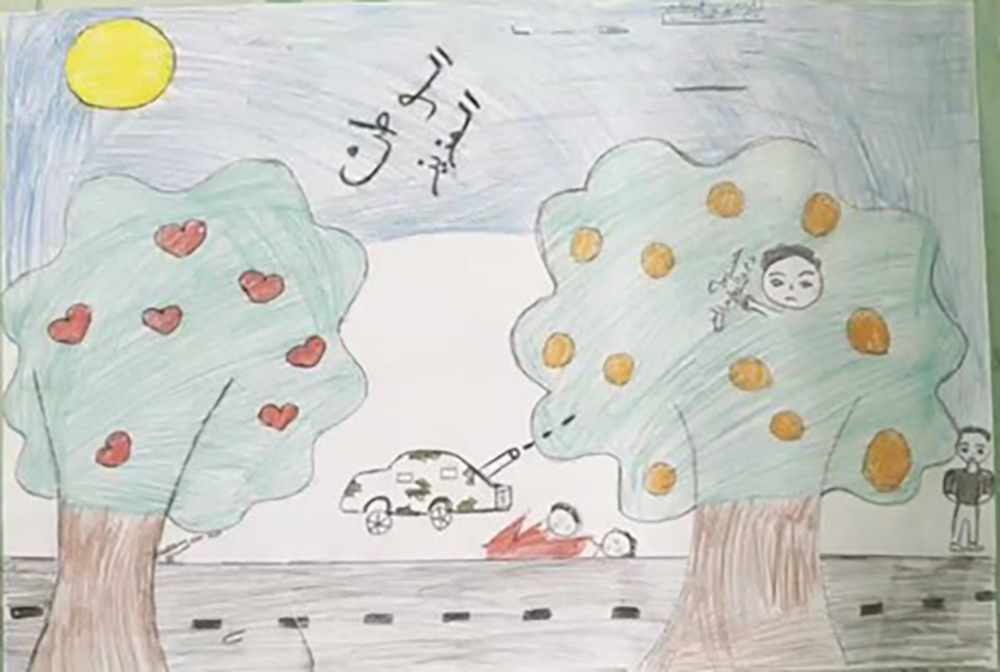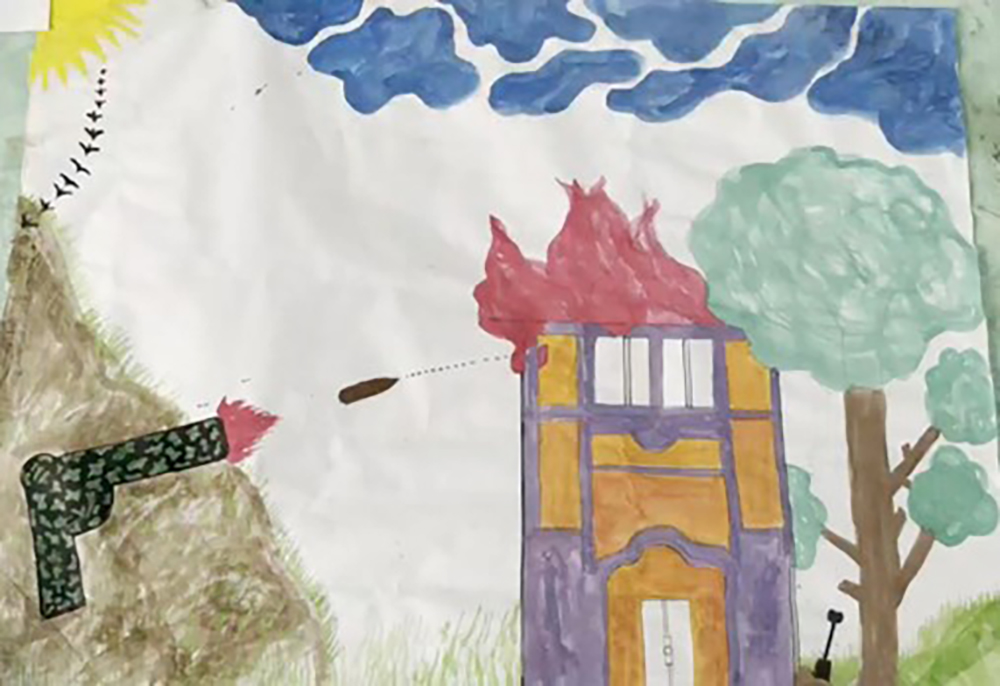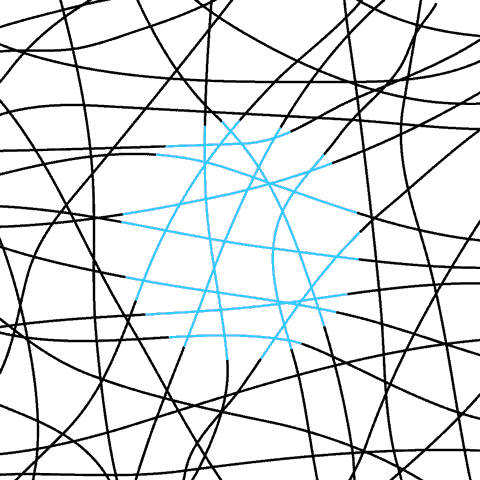The drawings, from children in a child-friendly space[i] run by the aid group for families who have been forced to flee, are published as latest data shows more than 1.9 million people[ii] have been forced out of their homes over the past two months, about half of them estimated to be children.
Ahead of a major fundraising conference for the crisis in New York on Monday, Save the Children is calling on the international community to rapidly increase and commit to funding and resources to meet critical needs both in Sudan and in neighbouring countries.

Drawing by 16-year-old Maram* who has been displaced due to fighting in Sudan.
Photo: Save the Children.
Maram*, 17, fled Khartoum and is now staying with her family at a Save the Children shelter. She drew a military vehicle firing at a child hiding on a tree with two more children lying on the ground dead. Her drawing also shows a ground to air weapon firing in the direction of the child on the tree as another child watches from a distance helplessly with his hands behind him.
She said: “I saw these scenes [in the drawing] on the way while escaping. It’s a reflection of something that made me sad. I am heartbroken that we had to flee our home and come here [in the shelter]. If I had a magic wand, I would make all households the same and no one better than others. I want to become an artist and wish we can all have homes and live close to each other.”

Drawing by Salma*, 17, who has been displaced due to fighting in Sudan.
Photo: Save the Children.
A sketch by Salma*, 17, portrays someone shooting at a house on fire. Fighter jets can also be seen landing nearby. Her other drawings show blood raining down on a soldier as the soil soaks in blood.
She said: “I drew these drawings because I am saddened by what’s happening in Sudan and seeing people’s homes destroyed. I am heartbroken for every person whose home has been shelled and was displaced. If I had a magic wand, I would make Sudan a much better place. I want to be a surgeon, a world famous one, and for my family to be relaxed, happy and get all what they want.”
Omar*, 16, drew a military vehicle passing by a home and children playing nearby. He said: “I saw the [military vehicle] on my way while escaping. This drawing is a memory of this journey. I am sad that I live here now [in the shelter] and want to go home. I do not want to change the whole world, I just want to change Khartoum and make it like Egypt, full of apartment buildings. I want to work and earn money when I grow up, so that I can build an apartment building for myself and send my parents to pilgrimage.”
The drawings by children have emerged in a psychosocial support programme run by Save the Children in its child-friendly spaces to help children process what they witnessed over the past two months of violence.
Maab Abdelhalim, a psychologist working with Save the Children in Sudan, said nearly every child arriving at the child friendly space is emotionally and psychologically affected by the war. She said:
“Some recover quickly, but some are severely traumatised. For example, Maha*, 12, who was wandering for days in the streets with her two older sisters, was caught up in the middle of Libya Souq assault[iii] and was lost from her siblings for a while. Her older sister Reem* was trying to cover their eyes, so they would not see the people killed. I can see in her behaviour, in the way she speaks, how deeply this has affected her. She wasn’t talkative, and had no expression at all. She says that she is angry and sad that the war has not finished.
“These children will need sustained psychological and emotional support”.
Save the Children is calling on major donors in New York on Monday to provide flexible funding, particularly for child protection programmes including psychological support and child-friendly spaces.
Arif Noor, Country Director for Save the Children in Sudan, said:
“These drawings are a clear indication that children suffer the most due to war. We’re doing all we can to help children recover from these traumatic experiences but as the war continues, its impact on children now and in the future will only increase with basic services such as education and health seriously disrupted.
“We must see ambitious and tangible financial commitments from donors on Monday. If children are not supported in a timely manner, there might be negative long-lasting impacts on their emotional and psychological health, which can in turn affect their development and education. It is essential that children receive the support they need to recover.”








